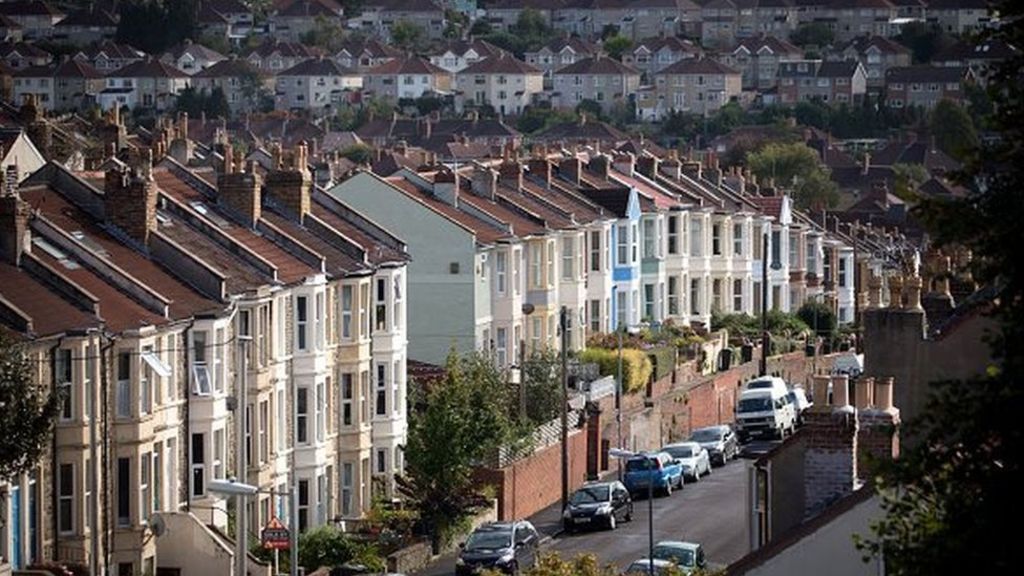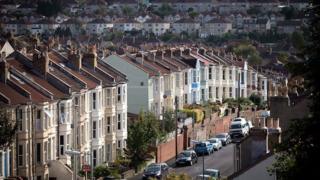Osborne ‘Pinocchio’ over Brexit house price fall: IDS – BBC News

 Image copyright Getty Images
Image copyright Getty Images Former cabinet minister Iain Duncan Smith has compared George Osborne to “Pinocchio” over his claim that a vote to leave the EU would cause an economic shock to UK house prices.
The chancellor earlier said that in the event of a vote for Brexit, by 2018, houses could be worth up to 18% less than if the UK voted to remain.
But Mr Duncan Smith said the claim reminded him of “the nose growing rather long”.
Treasury analysis is due next week.
Its report will suggest that two years after a Brexit vote, UK house prices could be between 10% and 18% lower than after a remain vote.
“If we leave the European Union, there will be an immediate economic shock that will hit financial markets. People will not know what the future looks like,” Mr Osborne said.
Labour attacks ‘skyrocketing’ rent rises
The UK’s EU vote: All you need to know
G7 finance ministers also think a UK exit would cause a “shock” to the world economy.
After two-day talks in Japan they said it would complicate the world economy alongside geopolitical conflict, terrorism and the refugee crisis.
The International Monetary Fund last Friday also said Brexit could cause a “sharp drop” in house prices.
But former Work and Pensions Secretary Mr Duncan Smith, who is campaigning for the UK to leave the EU, cast doubt on the chancellor’s forecast, saying: “When I heard that I did think of Pinocchio and the nose growing rather long here.
Trade and economy
The debate
- About half of UK trade is conducted with the EU
- The EU single market allows the free movement of goods, services, capital and workers
- Trade negotiations with other parts of the world are conducted by the EU, not individual member states
Leave
- UK companies would be freed from the burden of EU regulation
- Trade with EU countries would continue because we import more from them than we export to them
- Britain would be able to negotiate its own trade deals with other countries
Remain
- Brexit would cause an economic shock and growth would be slower
- As a share of exports Britain is more dependent on the rest of the EU than they are on us
- The UK would still have to apply EU rules to retain access to the single market
He said Mr Osborne had set up the Office for Budget Responsibility in 2010 because Treasury reports could not be trusted as “they were always fiddled with by chancellors of the exchequer”.
He also said that the Treasury had failed to predict either the recession or a November fall in tax receipts.
“Now what we have had is a whole series of Treasury reports telling us the world is going to end, we are going to end up with lower house prices, the economy is going to be bad,” he said.
“Even the Treasury has to admit under their most pessimistic forecast, the British economy would continue to grow after we left the European Union. And, this report also says house prices would continue to grow.
“My point is very simple, they do not know.”
Analysis
By BBC political correspondent Chris Mason
With four and a bit weeks to go until referendum day, voters find themselves swimming in a murky ocean of questionable statistics.
And when I say questionable, I’m being polite.
August bodies and grand figures on both sides are making bold claims. And they are both guessing.
So what’s happening here? Each side is playing what it sees as its greatest hit.
The let’s stay in brigade talk about the economy. The more grabby the headline, the more people who will notice.
The let’s get out brigade talk about immigration. The more grabby the headline, the more people who will notice.
There will be plenty more claims where these came from before you pick up that stubby little pencil in a draughty polling station.
Mr Osborne earlier told the BBC an “economic shock” would follow a vote for Britain to leave the EU.
“In the long term, the country and the people in the country are going to be poorer,” he said.
“That affects the value of people’s homes. And at the same time, first-time buyers are hit because mortgage rates go up, and mortgages become more difficult to get. So it’s a lose-lose situation.”
Campaigners for Vote Leave have previously said that lower house prices would help first-time buyers and those in the rental market.
Former Business Secretary Sir Vince Cable tweeted: “Osborne on house prices. Surely big price fall good for affordability and economic balance. Stick to jobs and basic economics George.”
| Year | Remain in EU | Leave EU |
|---|---|---|
| 2016 | 278,500 | 277,600 |
| 2017 | 290,800 | 288,900 |
| 2018 | 303,000 | 300,800 |
| London | ||
| 2016 | 536,000 | 533,700 |
| 2017 | 564,500 | 559,300 |
| 2018 | 599,200 | 591,700 |
| source: NAEA/ ARLA/ CEBR |
On Thursday, estate agents claimed a Brexit would take about 2,200 off average house prices by 2018.
Ratings agency Moody’s also said curbing immigration would ease competition for housing, and slow down house price and rental inflation.
Also on Saturday, former Prime Minister Gordon Brown urged mothers to vote for the UK to stay in the EU for the sake of their children.
He told a conference of left-of-centre think tank the Fabian Society: “To mothers who are worried about the prospects for their children in the future and want to know where the jobs will come from, to people who feel that globalisation is a runaway train and it’s out of control and uncontrollable, we’ve got to show that we can manage that in the public interest.”
Read more: http://www.bbc.co.uk/news/business-36351310